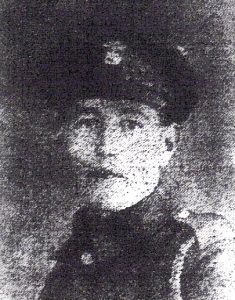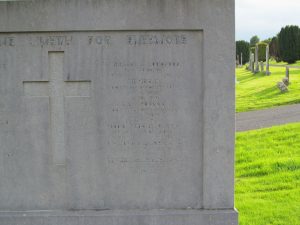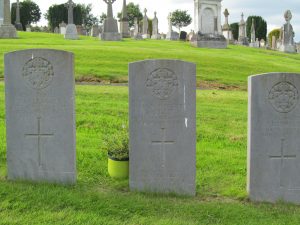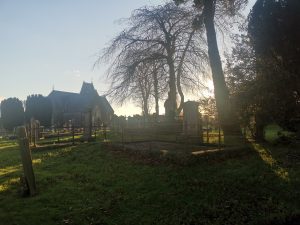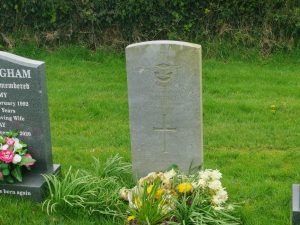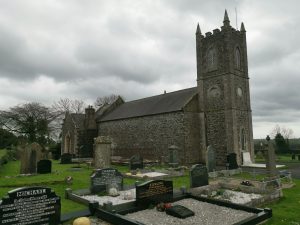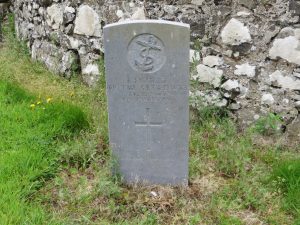Clarke, A (Alexander)

Clarke, A (Alexander)
Private Alexander Clarke was the husband of Bridget Clarke, of 7, Union St. Londonderry. He served with the 6th Battalion of the Royal Irish Regiment.
Alexander arrived with his battalion at Le Harve,[1] France on the 17th of December 1915. He had joined up twelve months prior.
The 6th moved about several places in France, largely training and being attached to other battalions. It was not until January 1916 that they received their first casualties in the trenches at Philosophe,[2] although these were minor. This trend continued right through to May in various places in northern France and southern Belgium. May found the battalion in Loos.[3] Here the casualties started rising as they manned the front line and supporting trenches, but still not in dramatic numbers. This continued right through to June.
June found the army attempting and failing to attack the enemy with gas as the wind was not being favourable during any of the attempts. Mines were also exploded under the British and German trenches, killing hundreds. The 6th Battalion was not directly involved in these events but reported on them.
July began with the men moving to billets in Philosophe. They then moved onto Mazingarbe. Luckily as the billets they had just been in were shelled and destroyed.
Casualties continued during the month, but still in small numbers. This continued into August. By the end, the commanding office had calculated their casualties since landing in France, as 107 killed, 352 wounded and only 5 missing.
September would change the low casualty rate at Guillemont[4] and the Sunken Road area. On the 3rd the men advanced in good order, with the pipe band playing. At the days end they had suffered 325 casualties. The battalion attacked again on the 9th and 10th, and by the end of the last day the list had risen to 479 men, dead or wounded.
The 6th Irish Rifles soon left the area and went into the battalion reserves. They moved from place to place, training and regrouping, suffering only minor casualties again, right through to April of the following year.
April found the battalion in southern Belgium at the Wytschaete[5] sector. They attacked and suffered quite low casualties, with less than 140 men missing, killed, or wounded. They then got relieved and went to the brigade training area and remained in a supporting, reserve roll right through to September.
When Alexander died, his regiment was experiencing a quiet time on the front west of Bullecourt[6] (there were only two casualties).
Alexander died on the 2nd of September from contusions of perineum[7], urinal fistula and septicaemia[8] at the Third Northern General Hospital, Sheffield. The causes of his injuries are unknown, but the wounds were received at the front line and probably by shrapnel.
Private Clarke had served previously in the British army, but in which regiment, where and when is unknown. In civilian life, he had been a dock worker.
He was awarded the 1914/15 Star, the British War and Victory Medals.
Date of Death: 02/09/1917 (Aged 42)
Service: Private, Royal Irish Regiment, Depot, and 6th Battalion
Service Number: 2384
Burial Location: Londonderry (or Derry), City Cemetery, M. D. 430.
[1] Le Havre is a major port in Normandy, northern France.
[2] Philosophe is in the Mazingarbe area, northern France.
[3] Loos is an area and village in northern France.
[4] Guillemont is an area in northern France, around 50 miles south of Loos.
[5] Wytschaete is a town in southern Belgium.
[6] Bullecourt is a small village in northern France.
[7] Perineum is the region between the thighs.
[8] Septicemia is blood poisoning.
